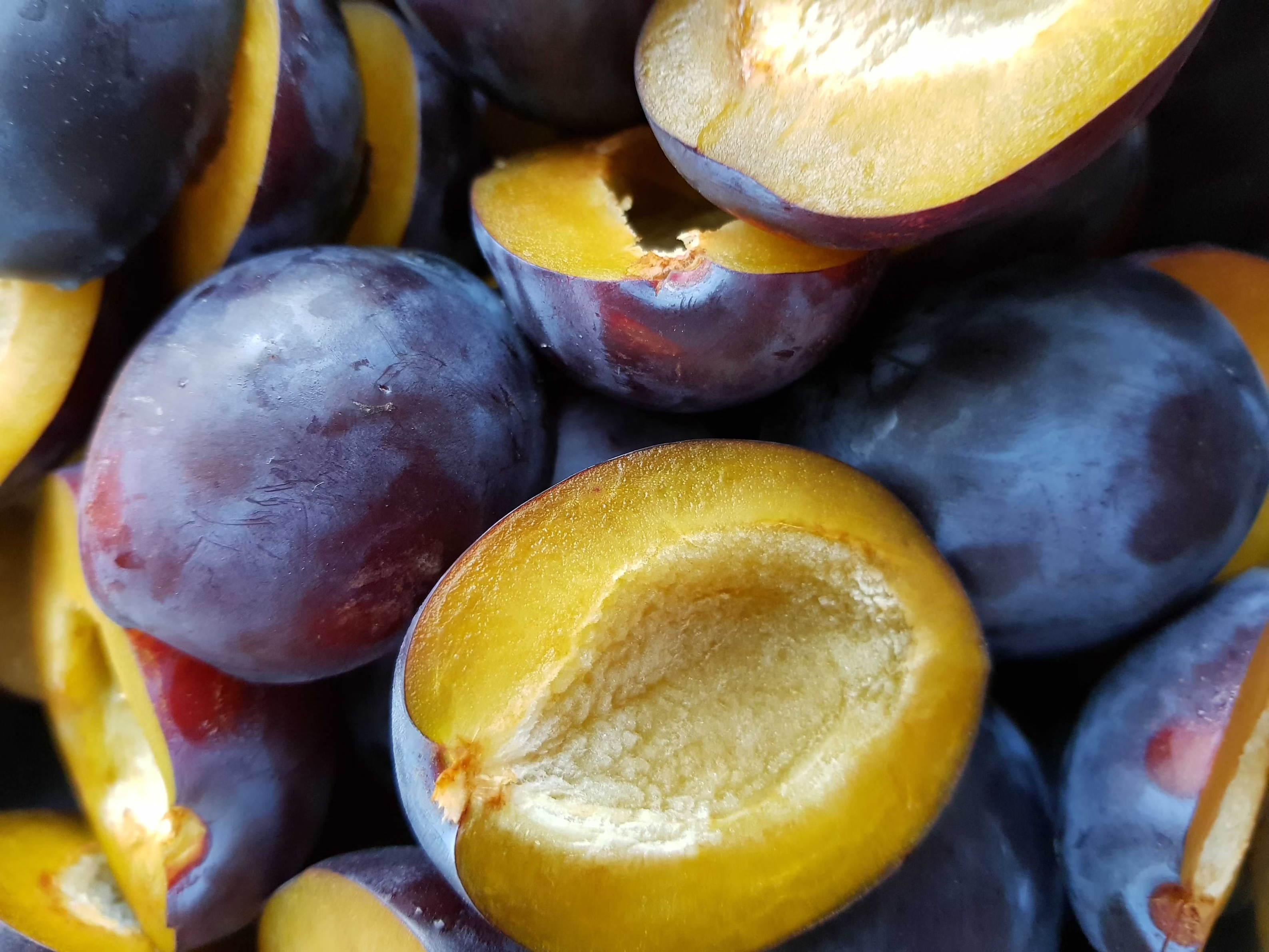Plum Calories: Skin-On Nutritional Facts
Plums, with their vibrant hues ranging from deep purple to red and yellow, are not only a delightful addition to the fruit bowl but also a valuable source of nutrition. A medium-sized plum with skin typically contains about 30 calories, making it a low-calorie option for those looking to snack on fresh fruits without significantly impacting their calorie intake. The skin of the plum contributes additional nutrients and fiber, which supplements the overall dietary benefits.

Plums, with their vibrant hues ranging from deep purple to red and yellow, are not only a delightful addition to the fruit bowl but also a valuable source of nutrition. A medium-sized plum with skin typically contains about 30 calories, making it a low-calorie option for those looking to snack on fresh fruits without significantly impacting their calorie intake. The skin of the plum contributes additional nutrients and fiber, which supplements the overall dietary benefits.
Nutritionally, plums are lauded for their composition, which includes dietary fiber, vitamins, and minerals. The soluble fiber in plums aids in digestion and can contribute to a feeling of fullness, which may help with weight management. Furthermore, they are abundant in antioxidants, substances that protect the body from oxidative stress and may reduce the risk of chronic diseases.
The role of plums in promoting bone health, digestive regularity, and heart function is supported by various nutrients they encapsulate. They are low in fat, and their consumption does not elevate saturated fat intake, aligning them with healthful dietary choices. For individuals monitoring caloric intake, the nutritional profile of plums proves to be particularly beneficial as they offer essential nutrients while keeping calorie count modest.
Nutritional Profile of Plums
Plums are a nutrient-dense fruit that offer a range of vitamins, minerals, and dietary fiber, all with a low-calorie count. Their nutritional value makes them a healthy addition to the diet.
Macronutrients and Fiber
Calorie Breakdown:
- Fat: 0.2g
- Carbohydrates: 7.5g
- Protein: 0.5g
- Dietary Fiber: About 0.9g
Plums primarily provide carbohydrates, which come with a moderate amount of fiber and a minimal amount of protein and fat. The dietary fiber in plums is beneficial for digestive health.
Vitamins and Minerals
Key Vitamins and Minerals:
- Vitamin A: Essential for eye health
- Vitamin C: Supports the immune system
- Vitamin K: Important for blood clotting
- Potassium: Crucial for heart function
- Copper, Iron, Calcium, and Manganese: Play various roles in bodily functions
Plums are notable for their vitamin C and vitamin A content. They also offer a good mix of other vital nutrients such as potassium, which helps with muscle functions, and a range of minerals necessary for a healthy body.
Caloric Content and Serving Size
Nutritional Facts Per Serving: (One medium-sized plum)
- Calories: ~30
- Serving Size: Approximately 66g
A single medium-sized plum provides an average of 30 calories, making it a low-calorie snack that can be enjoyed without significantly impacting the daily caloric intake. The serving size is usually one medium plum, which is both satisfying and nutrient-rich.
Health Benefits and Considerations
Plums offer a range of health benefits due to their nutrient composition which includes vitamins, dietary fiber, and antioxidants. However, like all foods, they should be consumed in moderation and there are potential considerations to bear in mind.
Dietary Advantages
Fiber Content:
- A medium-sized plum provides about 0.9 grams of dietary fiber, which contributes to healthy digestion and may help in managing weight by promoting a feeling of fullness.
Vitamin Content:
- Plums are a good source of vitamin C, which is important for the immune system, skin health, and iron absorption.
- They also contain vitamin K, which supports bone health.
Antioxidants:
- The fruit is rich in antioxidants that fight free radicals, which can prevent premature aging and reduce inflammation.
Plums in Diet and Cooking
- Fresh Eating: Plums can be enjoyed fresh as a snack, contributing to the daily intake of fruits.
- Cooked Plums and Jam: Cooking plums can result in delicious desserts such as pies and jams. When plums are cooked down to make jam, the natural sugars condense, often requiring no additional sweeteners.
- Storage: To extend their shelf life, plums can be stored in the freezer, either whole or in slices, for use in recipes throughout the year.
Potential Health Concerns
Sugar Content:
- Plums do contain natural sugars, which should be monitored in diets for those managing blood sugar levels, particularly in the case of diabetes.
Stone Fruit Allergies:
- As a stone fruit, plums are related to peaches, apricots, and nectarines and may cause allergic reactions in individuals sensitive to this group.
Sorbitol Content:
- Plums contain sorbitol, a sugar alcohol that can cause diarrhea or digestive issues in sensitive individuals or when consumed in large quantities.
Comparative Analysis With Other Fruits
| Fruit | Fiber (g) | Vitamin C (mg) | Sugar (g) | Notes | | ----------- | --------- | -------------- | --------- | ----------------------------------------------- | | Plum | 0.9 | High | Moderate | Antioxidants, vitamin K | | Apple | 4.4 | Moderate | High | Pectin for gut health | | Orange | 3.1 | Very High | High | Electrolytes for hydration | | Peach | 2.3 | Moderate | Moderate | Similar stone fruit, alternative to plums | | Apricot | 2.0 | High | Low | Lower in sugar, another stone fruit alternative |
In this analysis, plums provide a balance of fiber and vitamins with a moderate sugar content compared to other fruits, making them a valuable part of a balanced diet.
Want more posts like this?Sign up for our FREE newsletter →